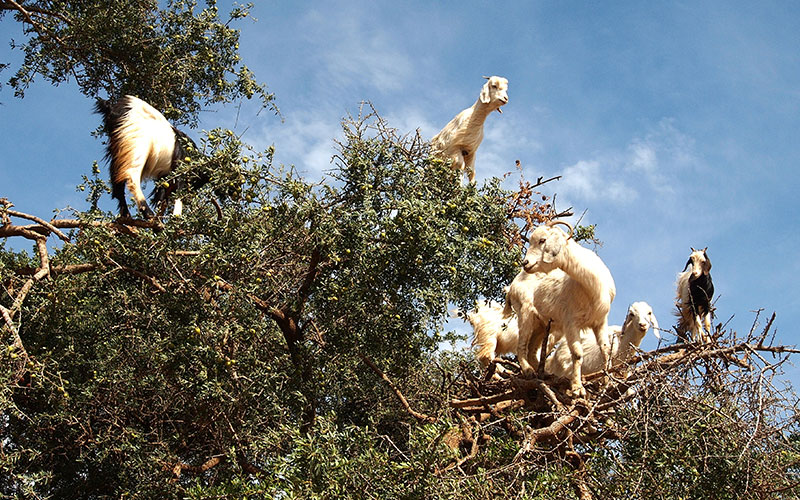Find out the latest in forest news in this week’s Forest Digest!

- Antarctic Ice Reveals Earth’s Accelerating Plant Growth – The New York Times
While one might assume there to be nothing but ice and snow in the eternal winter wonderland of Antarctica, scientists are discovering it to be the best location to study plant growth trends on a global scale. - Tree-climbing goats disperse seeds by spitting – Science Magazine
Talk about an unlikely synergetic relationship — Spanish ecologists are now observing that domesticated goats in Morocco are engaging in mutually beneficial exchanges with native argan trees. The goats climb to the treetops to forage (a fascinating sight in itself), and spit the seeds of the trees’ fruit to the ground. - This ‘smog-eating’ city sculpture can combat London’s toxic pollution as effectively as 275 trees – Evening Standard
Air pollution is a silent killer, and with London reaching “black alert” due its increasingly toxic air, the city is fighting back with new sculptural installations covered in smog-filtering moss. Could this become the new urban standard in environmental health? - How Americans Think About Climate Change, in Six Maps – The New York Times
In the “most detailed view yet of public opinion on global warming,” six maps based on new data released by the Yale Program on Climate Communication illustrate how Americans across the country feel about the looming threat of rising temperatures. - France climate ambition ends where the forest begins – EURACTIV
Approximately 30 percent of France is forested, except the country is now pushing for carbon emissions resulting from forestry activities to not be fully accounted for. Deforestation does, in fact, increase carbon emissions, which one campaigner says just “does not match up with the climate emergency.” - Activists step up protest against logging in ancient Polish forest – Reuters
When the Polish government made clear its intentions to log trees in protected areas, activists retaliated with bold acts of commitment to their forests, chaining themselves to logging equipment and accusing leaders of sacrificing the woodlands for profit.